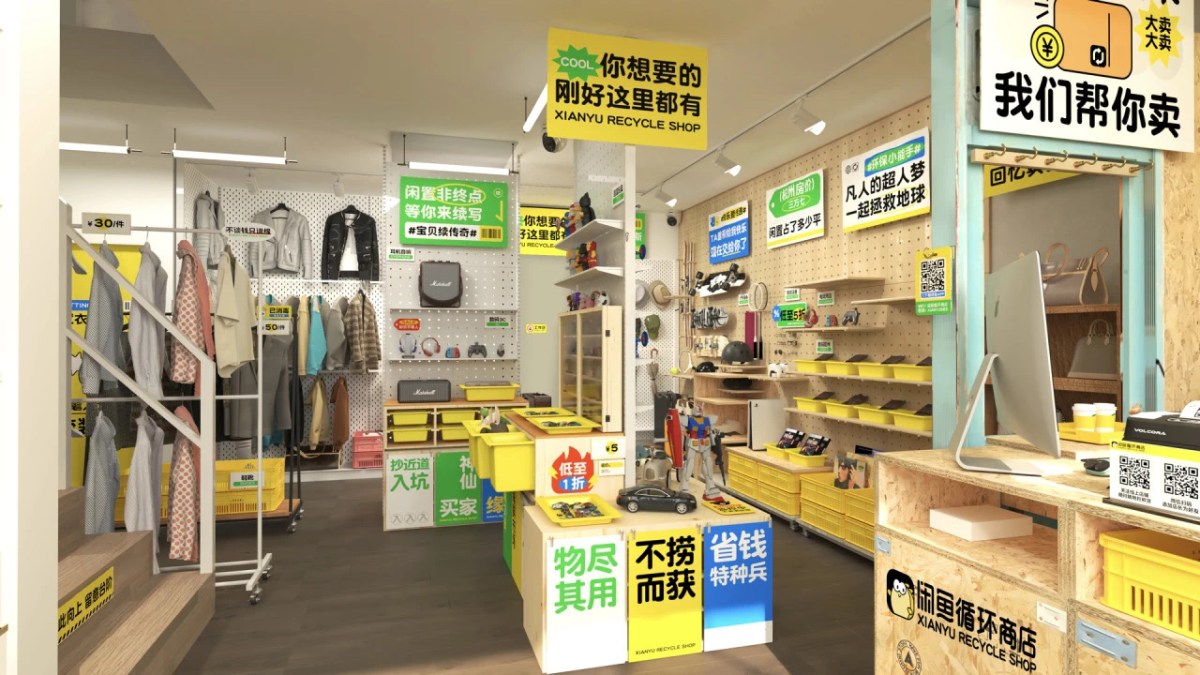Alibaba’s secondhand trading app Xianyu is on track to open an offline marketplace in the Gongshu district of Hangzhou, the resale operation’s latest eye-catching move after the platform was anointed one of Alibaba’s four “strategic-level innovation businesses” last November.
Why it matters: Alibaba is giving Xianyu three years to prove its value and operate as an independent subsidiary, with this attempt at a physical store seen as the first major step.
Details: The bricks-and-mortar flea market, scheduled to open this Sunday, will see local customers sell their used items and purchase items from other secondhand sellers directly, the platform said in a post on its official WeChat account.
- Xianyu says individuals can also list services such as running errands for others and walking dogs to earn extra money.
- The opening of the store aims to simplify communication between buyers and sellers, with sellers able to receive immediate payments via Alipay once their items are sold, unlike online where the process relies on a buyer clicking the “Received Goods” button for payment to proceed.
- Xianyu says the marketplace will accommodate digital products, outdoor sporting goods, clothing, and shoes, as well as luxury goods. However, trading in food and health products, pets, plants, and jewelry will be strictly prohibited.
Context: The popularity of Xianyu has been overshadowed by e-commerce retailers Taobao and JD in recent years as consumers have tended to seek brand-new goods, but, when it comes to collectible toys or cards, the platform has become a popular destination, especially for young people. This status has meant that Gen Z users, born between 1995 and 2010, account for more than 60% of Xianyu’s 500 million account holders, the company’s latest figures show.
- Alibaba CEO Eddie Wu in November identified Xianyu, along with 1688, DingTalk, and Quark as the company’s most promising businesses, saying he saw the potential for China’s largest secondhand trading platform to “become a lifestyle platform for consumers’ hobbies and interests.”

